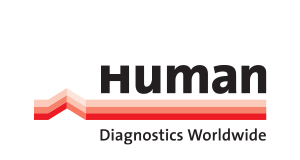
Autoimmune Diagnostics
An autoimmune disease is a malfunction of the immune system. The system attacks the body's own tissue or cells and can no longer distinguish between "endogenous" and "exogenous" cells.
ORIGIN
The development of autoimmune diseases is best described as "bad luck and bad genes": environmental factors (stress, infections, hormonal changes, etc.) in combination with genetic predisposition play a major role.
Pathogens adapt to the host organism in order to be more difficult to recognize as "foreign" (molecular mimicry).
Autoreactive immune cells are activated, which fight the pathogen acutely, but also form memory cells that can trigger autoimmune diseases even years later.
Around 60 autoimmune diseases are currently known. These can either manifest themselves systemically in the entire body (e.g. joints, connective tissue, etc.), be limited to certain organs or also occur together (intermediate).
DIAGNOSIS
The level of the antibody titer is decisive for the diagnosis of an autoimmune disease. Most autoantibodies are physiological (e.g.: dsDNA, ANA). The sole determination of the autoantibodies for a diagnosis is not sufficient, other serological findings as well as the clinical condition of the patient should be considered.
An autoantibody is determined in a special laboratory using ELISA, immunofluorescence or Line Immuno Assays (LIA).
CLASSIFICATION OF AUTOIMMUNE DISEASES
Depending on the manifestation, a distinction is made between...
- Dermatological / Vesiculo bullous
- Endocrinological
- Gastroenterological
- Hepatological
- Collagen – vascular/ rheumatic
- Neurological
- Other
… autoimmune diseases!
- WIESLAB® Complement System Classical Pathway, ELISAWieslab Complement Classical PathwayPrice is loading...Sku WIECOMPLCP310Manufact. SkuCOMPLCP310Packaging Unit96 Wells
- WIESLAB® Complement System MBL Pathway, ELISAWieslab Complement MBL PathwayPrice is loading...Sku WIECOMPLMP320Manufact. SkuCOMPLMP320Packaging Unit96 Wells
- WIESLAB® Complement System Alternative Pathway, ELISAWieslab Complement Alternative PathwayPrice is loading...Sku WIECOMPLAP330Manufact. SkuCOMPLAP330Packaging Unit96 Wells
- IMTEC-CIC IgGIMTEC-CIC IgGPrice is loading...Sku IMTTC 59031Manufact. SkuITC59031Packaging Unit96 Tests
- IMTEC-RA33-AntibodiesIMTEC-RA33-AntibodiesPrice is loading...Sku IMTTC 60015Manufact. SkuITC60015Packaging Unit96 Tests
- ImmuGlo™ Primate Split SkinPrimate-Split Skin Slide, BP/EBA differentiationPrice is loading...Sku ICO2147Manufact. Sku2147Packaging Unit6 well
- ImmuGlo™ Mouse Kidney/Stomach/Liver Slide10-well Mouse LKid/Sto/Liv SlidePrice is loading...Sku ICO2152-10Manufact. Sku2152-10Packaging Unit10 well
- ImmuGlo™ ANCA COMVI Slide, ethanol/formalin fixed hPMN'sc+pANCA COMVI Slide, ethanol/formalin fixed hPMN'sPrice is loading...Sku ICO2189Manufact. Sku2189Packaging Unit6+6 well
- ImmuGlo™ ANCA IFA (ethanol fixation) Kit20x12 well ethanol fixed slides with cANCA Control, IgG Conjugate, Diluent, PBS, MM, CoverslipsPrice is loading...Sku ICO1140-240Manufact. Sku1140-240Packaging Unit250 tests
- Primate Thyroid SlidePrimate Thyroid SlidePrice is loading...Sku ICO2180Manufact. Sku2180Packaging Unit6 well

 Deutsch
Deutsch








